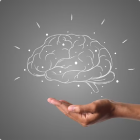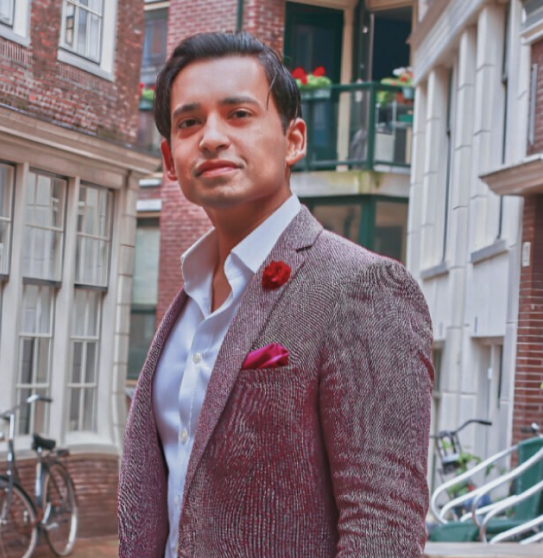Medication Management
Philosophy for Medication Management
Dr. Datta provides both medication management and talk therapy.
Dr. Datta is a General and Addiction Psychiatrist and Psychotherapist located on East 44th street and 5th avenue in Midtown, New York City near Grand Central Station. In addition to being licensed in New York, Dr. Datta is also licensed to practice in other states such as New Jersey, Illinois, Florida and North Carolina, Illinois. Dr. Datta has a location in Manhattan, Hoboken, Chicago, Miami and Raleigh. Please call to see if Dr. Datta can treat you in your location.
Dr. Datta provides medication management, psychotherapy and meditation. He practices a variety of psychotherapies such as psychodynamic psychotherapy, CBT, DBT, motivational interviewing and family and couples therapy. He provides specialty injectable medications such as vivitrol and sublocade for addiction patients, as well as suboxone treatments.
Dr. Datta is psychopharmacologist and a controlled substance specialist who integrates psychotherapy into the treatment.
In this practice you will receive a well-rounded understanding of your issues. If your medication regimen is complex, Dr. Datta will conduct a detailed review of medications so that it all makes sense. Dr. Datta will take into account the treatment you’ve received before. He does not reinvent the wheel if it’s not needed. He is interested in what you learned from your last provider and how he can help you fill in the gaps and continue your treatment in a fresh new way. Arnab Datta MD is like a private detective hired by patients, families and groups to remedy shortcomings in a diagnosis, medication regimen or psychotherapeutic results. Whether it’s in person or on video chat Dr. Datta strives to fill in these gaps in your mental health treatment.
Whether you are new to psychiatry and psychotherapy or you’ve had other doctors before; Dr. Datta can explain why each doctor had a certain rationale. Dr. Datta strives to connects the dots and provide his patients the full picture of what’s happening in their life, why it happened and what is the best course of action. Dr. Datta also provides holistic care such as customized meditations and EMDR. EMDR is not only for Trauma survivors, it’s also for people who need to let go of a negative habit or memory so they can change for the better.
More Services

Addiction Treatment
To help people experience psychological and emotional change in their lives

Psychotherapy
To help people experience psychological and emotional change in their lives

Meditation & EMDR
To help people experience psychological and emotional change in their lives

Med Management
To help people experience psychological and emotional change in their lives

Collab with Psych NPs
To help people experience psychological and emotional change in their lives
Philosophy for Medication Management
Dr. Datta provides both medication management and talk therapy.
Dr. Datta is a General and Addiction Psychiatrist and Psychotherapist located on East 44th street and 5th avenue in Midtown, New York City near Grand Central Station. In addition to being licensed in New York, Dr. Datta is also licensed to practice in other states such as New Jersey, Illinois, Florida and North Carolina. Dr. Datta has a location in Manhattan, Hoboken, Chicago, Miami and Raleigh. Please call to see if Dr. Datta can treat you in your location.
Dr. Datta provides medication management, psychotherapy and meditation. He practices a variety of psychotherapies such as psychodynamic psychotherapy, CBT, DBT, motivational interviewing and family and couples therapy. He provides specialty injectable medications such as vivitrol and sublocade for addiction patients, as well as suboxone treatments.
Dr. Datta is psychopharmacologist and a controlled substance specialist who integrates psychotherapy into the treatment.
In this practice you will receive a well-rounded understanding of your issues. If your medication regimen is complex, Dr. Datta will conduct a detailed review of medications so that it all makes sense. Dr. Datta will take into account the treatment you’ve received before. He does not reinvent the wheel if it’s not needed. He is interested in what you learned from your last provider and how he can help you fill in the gaps and continue your treatment in a fresh new way. Arnab Datta, MD is like a private detective hired by patients, families and groups to remedy shortcomings in a diagnosis, medication regimen or psychotherapeutic results. Whether it’s in person or on video chat Dr. Datta strives to fill in these gaps in your mental health treatment.
Whether you are new to psychiatry and psychotherapy or you’ve had other doctors before; Dr. Datta can explain why each doctor had a certain rationale. Dr. Datta strives to connects the dots and provide his patients the full picture of what’s happening in their life, why it happened and what is the best course of action. Dr. Datta also provides holistic care such as customized meditations and EMDR. EMDR is not only for Trauma survivors, it’s also for people who need to let go of a negative habit or memory so they can change for the better.
Medication Management and Talk Therapy
How do psychological issues affect daily life and relationships? Dr. Datta believes that psychological issues have an emotional origin, and that specific types of talk therapy can help one overcome negative emotions and experiences that may be affecting their lives. Dr. Datta often uses guided meditations with talk therapy to help engage the unconscious mind in letting go of “emotional trauma and baggage” and to alleviate anxiety. The types of talk therapy are mentioned below:
Psychodynamic psychotherapy
Cognitive behavioral therapy
Motivational interviewing
Family & couples therapy
Life coaching and counseling
Customized Meditations
These psychotherapy techniques are applied to treat mood disorders, bipolar disorders, anxiety disorders, trauma and loss among other conditions. Dr. Datta also uses Holistic methods, such as customized guided meditations based so that you can learn from your traumas and let go of them.
Talk therapy is the foundation of our full 45 minute session. This may include medication management if needed. If the patient already has a therapist, then a 30 min medication management session is also available.
Medication management means consuming a psychiatric medication to improve your mental health. It has been largely stigmatized as a negative thing—but it isn’t. It helps humanity; it can help your individual humanity. Taking medication for your mental health must be done for the right reasons, rather than reflexively, thoughtlessly, or superfluously. This takes a skilled doctor to differentiate the nuances of how the patient can improve themselves in holistic ways, such as via psychotherapy and meditation, vs. the people who would benefit from medication. There is certainly an overlap between the two.
Regarding the stigma of taking medications. There’s no shame in taking antidepressants or anti-anxiety medications during difficult times; these medications are tools to help strengthen emotional health. Then continue to do psychotherapy, meditation, have decent sleep, a decent diet, and exercise to achieve your mental peace. Continue these holistic things to improve your emotional strength. You can take medication for 3-6 months and see how much it adds to your improvement. Medications given for the right reasons can bolster your strong work ethic in psychotherapy, meditation, and your holistic regimen. Taking medication for a therapeutic duration (a duration where you don’t quit—in which the medication does some good for you) can efficiently improve your depression, anxiety, or mood problem. Then the medication can be continued at a lower dose or discontinued. Without medication, some people continue doing psychotherapy and meditation for 10 years and sometimes hit a ceiling. If they take the right medications for the right reasons, then they can break through this ceiling and have their faith strengthened in their holistic self-care strategies.
Patients with high doses of controlled substances, such as Adderall or Xanax, can benefit from Dr. Datta’s expertise. He offers a free discovery call, where he provides insight regarding what might be happening within your unconscious mind. He tries to do this to the best of his ability to give you a bird’s-eye view of what your treatment will look like with him before you become an active patient. He will offer you some sort of taper-down regimen if your dosage of controlled substance medication is egregiously high—so that it’s not a surprise when you see him in session. He will also understand your emotional difficulties and why you needed to take a high dose of this medication.
Dr. Datta also provides motivational interviewing, a type of psychotherapy effective for addiction. He understands childhood and adolescent traumas and helps patients learn from and reframe these negative experiences, as well as surrender the negativity of trauma that we often hold on to. Many people use drugs to treat their psychological trauma. It offers escapism from the difficult emotions that are too difficult to face. Dr. Datta and his team are able to offer this type of holistic and comprehensive understanding and healing. This nuanced approach is tailored to each patient, offering the highest level of personalized care in medicine and psychiatry.
Arnab Datta, MD, is both a general adult psychiatrist as well as an addiction medication management psychiatrist who provides psychotherapy, couples therapy, and custom meditation techniques. Dr. Datta completed 2 fellowships in addiction medication management psychiatry, which makes him a controlled substance specialist. Dr. Datta uses medication therapy management and psychotherapy to help his patients. He believes that medications can be used for the right reasons to help patients strengthen their emotions. Dr. Datta integrates meditation to improve the psychotherapy experience. This helps patients release trauma and negative experiences—medication is a tool to help you get there.
Benefits of Medication Management
Imagine yourself going to psychotherapy and dedicating 10 years to it. You are sincere, dedicated, and working hard at it. Perhaps you’re engaged in meditation as well because you’re a believer in the holistic component as well. You notice some improvement and are content with that. This dedication is commendable and important for success—this is the heavy emotional lifting—and will always be the bread and butter of emotional healing and advancement. However, there are other tools available to help you, and you can feel better more efficiently.
Now imagine taking medication for depression, anxiety, or mood stabilization. Given your resilience, discipline, and consistency in self-improvement, medication could accelerate your progress. What took 10 years might take only a few months to 1 year with the right medication. It’s not a magic bullet but a tool that can support your journey. Dr. Datta and this team offer robust psychotherapy, meditation, as well as medication management. Not just any kind of medication therapy management—but where it’s given in the most nuanced fashion—integrated with your personality and struggles. Then Dr. Datta will taper down the medication when you don’t need it as a tool anymore. Dr. Datta always works toward developing the emotional strength to conquer your issues.
Something to know about how medications are prescribed and why people quit medications too early. Psychiatrists follow a strict philosophy when prescribing medication: start low and go slow. This means beginning with a low dose of medication and gradually increasing it while monitoring for side effects until reaching a therapeutic dose. A therapeutic dose means the medication is effective at that dose. A therapeutic duration means taking the medicine long enough to see benefits. Unfortunately, many patients quit too early, expecting instant results. Medications are not magic beans; they require dedication and consistency, just like any other aspect of self-improvement. I understand quitting a certain medicine if you’re really having side effects. You shouldn’t be on a medication that doesn’t agree with you. However, it takes a skilled doctor to understand when there’s a psychosomatic reaction or paradoxical reaction. The doctor needs to have skill, experience, and insight into what’s happening with the patient unconsciously to ascertain this. You can expect to have this nuanced and skilled experience with Dr. Datta.
Seeing many doctors with different philosophies can be overwhelming. The best psychiatrists understand your personality and emotions and integrate these with the right medication for you. The goal is to make you stronger emotionally and improve your mental wellbeing. Medication should not be taken thoughtlessly month after month. Reflection on why you’re taking the medicine and how it’s helping you is crucial. Medication can be a temporary tool to overcome emotional struggles, and then it can be lowered or discontinued.
Arnab Datta, MD, is a psychiatrist who provides this type of nuanced medication management therapy that integrates your personality and your issues. He works with you psychotherapeutically to help you achieve your goals efficiently. Dr. Datta serves patients in New York City, North Carolina, Miami, New Jersey, Chicago, and California. This is the philosophy of some of the best psychiatrists and psychotherapists in the industry. If you’re looking for a “mental health medication management near me”, medication management psychiatrist or medication therapy management provider, consider Dr. Datta for personalized, effective treatment.
Psychiatric medication management services
If you’ve felt misunderstood by previous medication management psychiatrists or prescribers, you might benefit from seeing Arnab Datta, MD. Dr. Datta is a detective, delving into your past treatments and medications. He respects the rationale of your previous doctors and explains their reasoning to you. He speaks with your other providers (with your consent) to understand their rationale and where they left off.
Dr. Datta doesn’t reinvent the wheel when it comes to medication management therapy. Instead, he integrates your medication with your psychological and emotional needs. This is where the skill of medication management lies—the integration of medicine, heart, and mind. As a result, Dr. Datta often gets the diagnosis and medications right without causing side effects.
Dr. Datta’s skill set is seeing your conscious and unconscious mind, listening, and providing you feedback in a comforting and tactful way—in the context of controlled substance medication consumption and illicit drug consumption. Dr. Datta is skilled at tapering down high doses of narcotics and controlled substances, such as Adderall IR (and all forms of stimulants) and Xanax (and all forms of benzodiazepines). He won’t take it all away from you like a doctor who’s apprehensive about prescribing it. No, Dr. Datta’s treatment is sophisticated in that he will understand what amount of these narcotic medications you need based on your traumas, personality, and character. If you’ve been to other doctors before and don’t really have a clear picture of what’s happening with you, Dr. Datta can efficiently decipher the rationales other doctors had for your diagnosis and character issues. Have a free discovery call with Dr. Datta to see if we’re a fit. Dr. Datta is also a controlled substance specialist, having completed 2 fellowships in addiction psychiatry.
Dr. Datta is also a Suboxone provider, treating patients suffering from oxycodone and heroin addiction. His approach combines psychotherapy with controlled substance medication regimens, helping you overcome addiction if you put in the effort between sessions. Dr. Datta will help heal your emotional wounds and trauma as it pertains to your substance abuse. He’s a psychiatrist who also provides psychotherapy, meditation, and life coaching.
Dr. Datta understands that not all patients need to be taken off their medications completely. He customizes treatment plans, ensuring that those who genuinely need medication continue to receive it.
The level of customization you will receive with Dr. Datta is at a very high level. He also conducts additional screening of the patient’s medical history to understand any health issues. Many of Dr. Datta’s patients have multifactorial conditions, where psychological issues are related to other health problems. Dr. Datta collaborates with your other doctors to get to the root of your mental and physical health issues.
If you’re looking for a top-tier psychiatrist who also understands your personality, life story, and character deeply, then have a free discovery call and see if Dr. Datta and his team are right for you. Here you don’t need to see separate doctors for meds, controlled substances, psychotherapy, life coaching, couples therapy, meditation, or EMDR. You can see one expert/one practice for all of these things. These services are offered in New York City, North Carolina, Miami, New Jersey, Chicago, and California.
Lead Psychiatrist, Owner
Arnab Datta, MD
Dr. Datta is board certified in Adult Psychiatry and Addiction Psychiatry. He received his residency and fellowship training in New York City. Dr. Datta was the medical director of addiction services at St Joseph Hospital in Yonkers New York for 5 consecutive years (from 2016–2021), where he started a suboxone and vivitrol program to treat substance abuse. Currently, he’s the medical director of 3 clinics in NYC; Revcore, Silverlake, and GMHC. However, he also practices in the states of New Jersey, North Carolina, Florida, Illinois as well as New York.
This is Dr. Datta’s private practice where he provides comprehensive care in medication management, psychotherapy, family and couples therapy, addiction treatments, and meditation techniques from the comfort of your own home. If you feel Dr. Datta can help you, call at any time to schedule a free discovery call. We will answer questions about the practice and regarding the fees.

Frequently Asked Questions(FAQs)
I won’t give you medications if you don’t need them; I will understand your life story and your troubles psychologically and emotionally and help you with psychotherapy, customized meditation, and EMDR exercises. However, imagine if you’re going to psychotherapy and taking a little bit of medication might speed up your treatment. Imagine if you’re doing all the psychotherapeutic and emotional work, and taking a minimal dose of medication could put your depression or anxiety recovery on the fast track to healing. I’ll be the first person to tell you if you don’t need the medication, but I’ll also be the first person to tell you if medication will truly help you. Then I’ll taper the medication down when you have the psychological and emotional strength. The medication helps you get there. This is a very customized treatment.
People who are doing psychological and emotional work need a little bit of a push to break through that last barrier. This is a very customized process because everyone’s psychological and emotional troubles are different and originate from a different place. The treatment you receive from me is very customized and precise to your life experience.
If you’ve been doing the psychological and emotional work already and you feel like you need an extra push, Medication management can be used as a tool to break through that last hurdle and improve your psychological and emotional well-being. When you have an experienced psychopharmacologist by your side, like Dr. Datta, he can help guide you regarding when and for how long certain medications can be helpful to treat your condition.
This is a very customized duration of time depending on your condition and the angle of how we are treating it. The main thing to understand is that I will always help you strengthen your psychological and emotional state, first and foremost. We can use medication and psychopharmacology to help you treat your depression, anxiety, and mood issues faster and more efficiently.
Yes, there can be potential side effects from medications. Rest assured, I will educate you on the side effects of the medications. And I will monitor you so that you don’t have any side effects or have very limited side effects. Symptomological questions are asked along with blood tests for specific medications that require them. Rest assured, I don’t let any of my patients experience side effects for long. I always err on the side of less medication for the least amount of medication necessary to treat a psychological issue.
Absolutely, that is our goal. My goal is to heal you psychologically and emotionally. Our goal is for you to be a stronger version of yourself, both psychologically and emotionally. I’m not going to keep you on medication if you don’t need it.
Mistakes and medication management occur when there’s a long gap in the patient’s follow-up. Or it’s reflexive treatment from the doctor. Reflexive treatment means the doctor might not be thinking so much about why the patient is on this medication. Rest assured, in my practice, each and every patient receives customized care. The patient’s psychological and emotional journey is well understood before any medication is given. And the psychological and emotional maturation of the patient is well monitored and medication is tapered up and down accordingly. There is no reflexive or thoughtless prescribing here. I always inquire if the patient needs this medication, for what psychological or emotional reason, and what progress we are making.
Rest assured, I’m not going to give you medication if you don’t need it. Imagine doing a lot of psychological and emotional work to remedy your depression and anxiety. If you want to proceed without medication and would rather do psychotherapy alone, be my guest, and I will support you in that process. However, if you are open to taking medication, I’ll never let you be on more medications than you really need. I’ll take the medications off when you’re psychologically and emotionally strong enough. The medications can be used as a tool to help you in your journey as you are healing psychologically and emotionally.
Meditation involves closing the eyes, deep breathing or rhythmic breathing. It is used in exercise, martial arts and yoga, so it certainly improves physical health. Meditation takes our attention inside and helps us organize our emotions, which can go up and down sometimes. If we always allow the stimulus from the outside world to affect us, we need to bring attention inside—we need to quieten our mind. This helps us conglomerate all of the advice, feedback, experiences, and stimulus we have experienced. This helps our emotional well-being. A combination of psychotherapy and meditation is very helpful for mental health.
Meditation is very helpful for people with mental health concerns. Sometimes we are inundated by the stimulus of the outside world.
You should meditate for at least 5–7 minutes a day, sometimes even twice a day. If you meditate for a short amount of time, you will still be attached to the stimulus of your day-to-day tasks and the stimulus of the outside world. Give yourself a chance to sink into the quietness of our mind. We need to hold the meditation technique for at least a few minutes more to be able to get into this state of quietness. This is very helpful for a sense of well-being.
EMDR stands for Eye Movement Desensitization and Reprocessing. We are faking out the brain to make it think we are experiencing REM sleep. During REM sleep, we dream. Dreams are essentially memories, images, and bits and pieces of the unconscious mind coming to the conscious mind. We see abstract images and overlays of images with memories in our dreams. EMDR is the yellow brick road to the unconscious mind. With EMDR, we may be able to let go of some of the traumas that remain in our unconscious minds. Sometimes we carry past traumas with us, and this negatively affects our present-day lives. With skilled EMDR treatment, one may be able to let go of or surrender some of these traumas that they are holding on to.
Please call Dr. Datta at +1 877-376-4560 and see if we are fit.
Emdr, or eye movement desensitization reprocessing, is most commonly used to treat past trauma. However, it can be used to change any type of behavior. EMDR can be used to surrender or let go of maladaptive behaviors, addictive behaviors or even bad habits.

